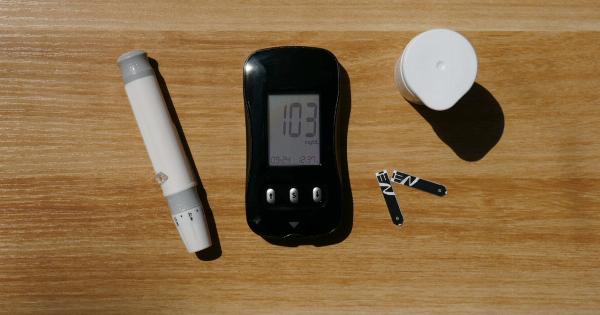Music has been an integral part of human culture for centuries. It has the power to evoke strong emotions and influence our mood and behavior.
But did you know that music can also have a significant impact on our physiological health, particularly on our blood pressure? Numerous studies have explored the fascinating connection between music and blood pressure, shedding light on how music can be used as a therapeutic tool to manage hypertension and promote overall well-being.
The Effect of Music on Blood Pressure
Listening to music has been found to have a profound effect on blood pressure levels. Research has shown that slow, calming music can help lower blood pressure, while fast-paced, upbeat music can cause a temporary increase in blood pressure.
A study conducted by researchers at the University of Florence in Italy found that listening to classical music for just 30 minutes a day can significantly reduce blood pressure in individuals with hypertension.
The researchers believe that the soothing melodies and harmonies of classical music promote relaxation, reducing stress and anxiety levels, which in turn have a positive impact on blood pressure.
In contrast, listening to heavy metal or loud, aggressive music has been shown to temporarily increase blood pressure.
This may be due to the stimulating and arousing nature of such music, which can trigger the body’s stress response and lead to a rise in blood pressure.
The Role of Rhythm and Tempo
One of the key factors that influences the effect of music on blood pressure is the rhythm and tempo of the music.
Research has found that music with a slow tempo, around 60-80 beats per minute, has the most significant impact in reducing blood pressure.
This rhythm closely mimics the natural resting heart rate, helping to induce a state of relaxation and calmness. When our heart rate aligns with the rhythm of the music, it can lead to a decrease in blood pressure and a sense of overall well-being.
On the other hand, music with a faster tempo, such as fast-paced dance music or heavy rock, can stimulate the sympathetic nervous system and increase blood pressure temporarily.
The Power of Lyrics and Emotional Connection
While the rhythm and tempo of music play a crucial role in its effect on blood pressure, the power of lyrics and emotional connection should not be overlooked.
The emotional content of a song, as well as the personal memories and associations it evokes, can significantly impact our physiological responses.
Studies have shown that listening to music with positive, uplifting lyrics can help decrease blood pressure and promote a sense of well-being.
This may be because positive lyrics and uplifting melodies can help reduce stress levels and increase feelings of happiness and positivity.
Similarly, listening to music that holds deep personal meaning or evokes strong emotions can have a profound effect on blood pressure.
These emotional connections can trigger the release of endorphins and other feel-good hormones, leading to a decrease in blood pressure and a sense of relaxation.
The Role of Music Therapy in Blood Pressure Management
Given the significant impact music can have on blood pressure, it is no surprise that music therapy is becoming increasingly recognized as a valuable tool in managing hypertension and promoting cardiovascular health.
Music therapy involves the use of music, under the guidance of a trained therapist, to improve physical, emotional, and cognitive health. It can be used as a complementary therapy alongside traditional medical treatments for hypertension.
One of the main goals of music therapy in relation to blood pressure management is stress reduction.
Stress is a leading contributor to high blood pressure, and music therapy offers a non-pharmacological approach to alleviating stress and promoting relaxation.
During a music therapy session, a therapist may use various techniques, such as deep breathing exercises, guided imagery, and progressive muscle relaxation, combined with carefully selected music, to induce a state of deep relaxation and reduce blood pressure levels.
Additionally, music therapy can also help individuals develop healthier coping mechanisms for stress.
By exploring and expressing their emotions through music, individuals can gain insight into their stress triggers and learn effective techniques for managing stress, which can ultimately lead to better blood pressure control.
The Mind-Body Connection
It is important to note that the effect of music on blood pressure is not solely attributed to the auditory experience. Music has a profound impact on the mind and emotions, and these psychological changes can translate into physiological responses.
Research has shown that the mind-body connection plays a significant role in the music-blood pressure relationship. When we listen to music, it can activate various areas of the brain, including those associated with emotions, memory, and reward.
These activations can lead to the release of endorphins, neurotransmitters that promote feelings of pleasure and relaxation, ultimately leading to a decrease in blood pressure.
Additionally, the relaxing effect of music on the mind can also lead to changes in the activity of the autonomic nervous system, which controls heart rate and blood pressure.
A state of deep relaxation induced by music can help modulate the function of the autonomic nervous system, leading to a decrease in blood pressure levels.
Choosing the Right Music for Blood Pressure Control
When it comes to using music to manage blood pressure, not all genres or songs are equal. It is important to choose music that aligns with your personal preferences and has a calming effect on you.
Classical music, such as pieces by composers like Bach, Mozart, or Beethoven, is often recommended for blood pressure control due to its calming and soothing nature.
However, it is essential to select music that resonates with you personally, as individual preferences and emotional connections can have a powerful impact on the effectiveness of music therapy.
Experiment with different genres and types of music to find what works best for you. Some individuals may find comfort in nature sounds or instrumental music, while others may prefer calming vocals or meditative chants.
The key is to find music that helps you relax and promotes a sense of well-being.
Conclusion
The connection between music and blood pressure is a fascinating topic that highlights the power of music to influence our physical health.
Whether it is through the rhythmic beats, soothing melodies, or emotional lyrics, music has the ability to impact our blood pressure levels and promote relaxation and well-being.
Utilizing music therapy as a complementary approach to blood pressure management can provide individuals with a non-pharmacological tool to reduce stress, promote relaxation, and develop healthier coping mechanisms for stress.
By harnessing the power of music, we can enhance our overall cardiovascular health and improve our quality of life.






























